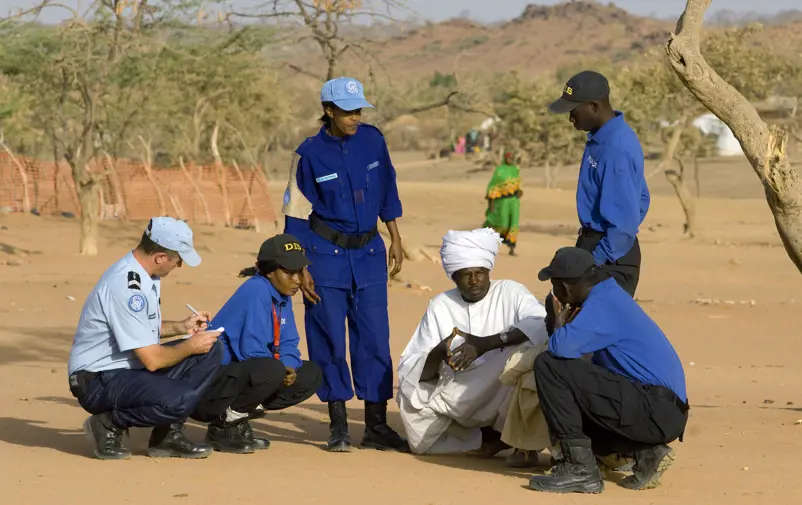Democratic Security Sector Governance
Reforms of the security sector, including for example the police, military and corrections, are often necessary in a conflict-affected state to create stability and prevent conflicts from re-emerging. Civilian control and democratic governance of the security sector are important steps to guarantee the safety and rights of the population and build trust between population and security actors.People in conflict-affected countries often view security actors as a threat, rather than a guarantor of safety. Some security actors may have been involved in the conflict, and human rights abuses as well as corruption can be widespread.
Under such circumstances, reforms of the security sector are required in order to build peace. Security actors often need training and other forms of capacity building to be able to fulfill their tasks and ensure respect for human rights.
Democratic security sector governance means that the security actors are subordinated civilian oversight mechanisms and that security is provided in a transparent and accountable way, and in accordance with the rule of law.
This requires, for example, ministries and other institutions that can give political and strategic guidance, provide oversight, that they can decide and coordinate activities, and guarantee the right of the civil society to debate and investigate security related issues.
Security sector reform aims at creating a transparent, accountable and effective security sector, where actors such as the police and military operate to guarantee the safety of all citizens without discrimination, and where citizens have trust in the security sector.
Click here to watch a short film and learn more about democratic security sector governance.
What does the FBA do?
- Training and advice
FBA offers training and advice on democratic security sector governance. - Research
FBA conducts and supports international research on democratic security sector governance. - Secondments
FBA seconds personnel working within the field of democratic security sector governance to international peace operations that Sweden contributes to, led by the EU, UN and OSCE. Click here to see a map of where our personnel is currently deployed. - Our partner countries
Within the framework of Sweden’s international development aid, FBA carries out projects concerning democratic security sector governance. Click here to read more about the countries where we work.







 >
> >
>

